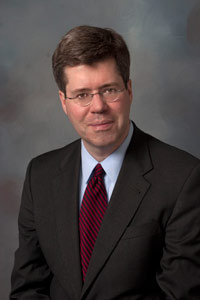Kearney Recognized as “Lawyer of the Year”
 The Milwaukee Bar Association recognized our own Dean Joseph D. Kearney as “Lawyer of the Year” at its annual meeting earlier today. In presenting the award, MBA President Michael J. Cohen particularly cited Kearney’s ambitious vision for Eckstein Hall and his leadership in bringing that vision to life. Cohen noted that our new facility will serve as a valuable resource for many years to come, not only for our students, but also for the wider legal community.
The Milwaukee Bar Association recognized our own Dean Joseph D. Kearney as “Lawyer of the Year” at its annual meeting earlier today. In presenting the award, MBA President Michael J. Cohen particularly cited Kearney’s ambitious vision for Eckstein Hall and his leadership in bringing that vision to life. Cohen noted that our new facility will serve as a valuable resource for many years to come, not only for our students, but also for the wider legal community.
In accepting the award, Kearney connected the Law School’s activities in Eckstein Hall to the ideal of the lawyer as a public citizen:
The greatness of the legal profession lies not only in its practitioners’ primary activities—doing deals, righting wrongs, protecting freedoms—but also in their other pursuits. The lawyer is, frequently at least, a public citizen, keeping his or her eye on the public good.
The effort of and in Eckstein Hall concerns all aspects of the profession, including an attention to the public good even beyond the development of future lawyers.
